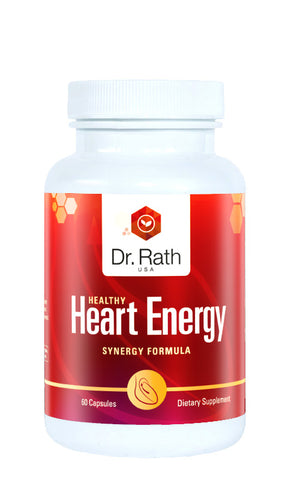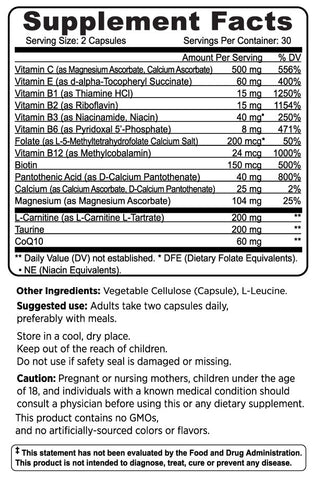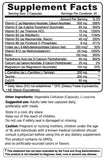recommendations, please contact our nutritionist at healthinfo@drrath.com
Description:

Every cell in our body requires energy to sustain life and maintain healthy functions.
Energy requirements of the cells in different organs vary with certain cell types having particularly high energy demands. Among these high energy consumers are the heart muscle, skeletal muscle, and brain, liver, and kidney cells.
Performing endurance sports or physical work put higher energy demands on the heart and skeletal muscles. The main source of energy for the heart are fatty acids. Skeletal muscle generates energy from fatty acids too during rest and mild-intensity exercise. However, with high physical activity glucose oxidation prevails.
In order to produce energy, the fatty acids have to be transported into the mitochondria with the help of a special amino acid derivative, carnitine. For conversion of fat and sugar into energy and its utilization in metabolism all cells require an optimum supply of B vitamins, vitamin C, coenzyme Q10, and other nutrients that work as catalysts and energy carriers in these processes.
Key synergy nutrients:
Vitamin B1 serves as a cofactor for several enzymes involved in cellular energy production and is critical for normal cardiac muscle function.
Vitamin C and the B vitamins are important for optimal energy metabolism, and contribute to reducing fatigue and exhaustion.
Coenzyme Q10 plays a central role in mitochondrial bioenergy production and improves the pumping action of the heart and muscle performance.
Carnitine is needed for the transport of fatty acids inside the mitochondria to be processed in the energy cycle.
Taurine has an important role in optimum heart function and maintaining regularity of heart rate.
Vitamins C and E protect the cells against oxidative stress.
![]()
Customer Reviews
Other fine products
Specials









